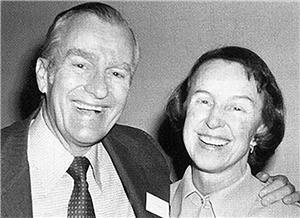On May 19, 1970, King County voters reject four Forward Thrust bond issues for a regional rail transit system, storm water control, community centers, and new County public health and safety facilities. The total local cost of $615.5 million (not counting $900 million in pending federal aid for mass transit) apparently alarms voters amid the deepening Boeing Bust. James Ellis and other civic leaders disband Forward Thrust soon after the vote.
Second Time Around
The election essentially resubmitted major components of the original Forward Thrust package, which had failed in 1968. The most important element was $440 million in bonds for a regional mass transit system with 500 miles of bus routes and 49 miles of rail. U.S. Senator Warren G. Magnuson had secured nearly $900 million in federal funding to cover three-fourths of the system's total cost of $1.321 billion -- if local bonds passed.
Other proposals included $80 million for storm water control, $55.3 million for new community centers, and $40.2 million for new County jails, police stations, and public health centers. Passage of the bonds required a 60 percent yes vote, and all the proposals fell far short amid the deepening "Boeing Bust" recession.
Derailed?
Mass transit did the worst with only 46 percent approval. Regional leaders such as Metro founder James Ellis disbanded Forward Thrust, and federal transit funding earmarked for King County was allocated to build Atlanta's MARTA system instead.
A dispirited Ellis told the press, "If rapid transit is to have a new beginning it will have to come from people other than the Forward Thrust Committee." However, Ellis and many of his comrades would return to the arena within two years, and win voter approval of an all-bus Metro Transit system on September 19, 1972. Regional voters would not fund rail transit until 1996, when they approved the $3.9 billion Sound Transit system.

